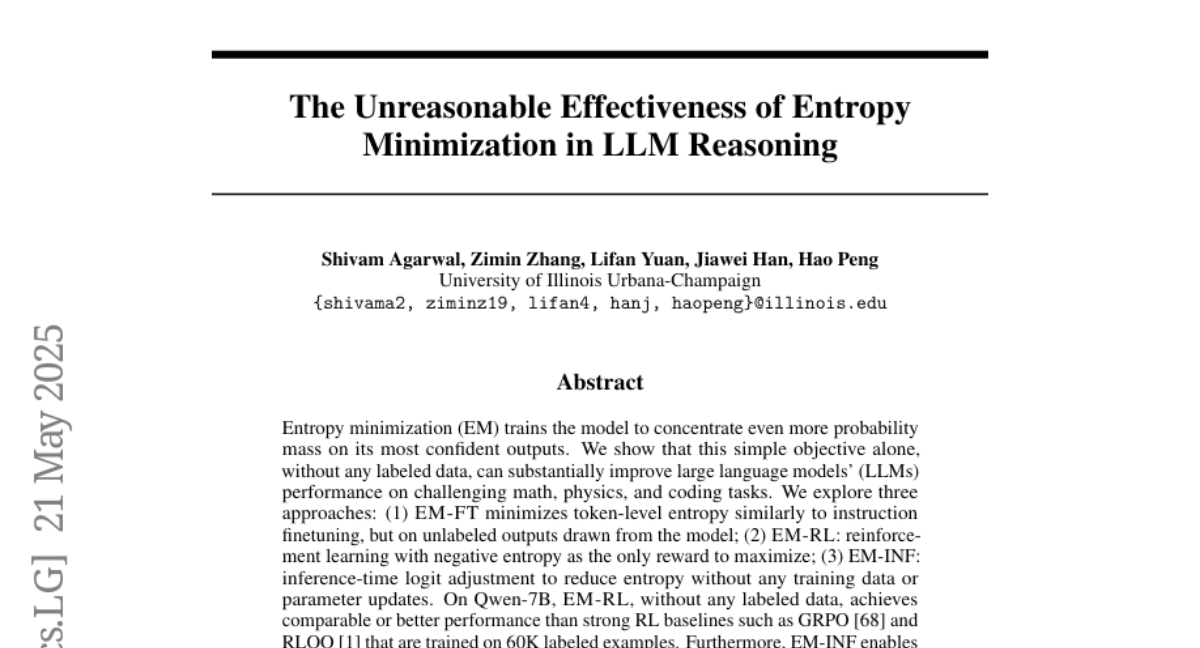The Unreasonable Effectiveness of Entropy Minimization in LLM Reasoning
Shivam Agarwal, Zimin Zhang, Lifan Yuan, Jiawei Han, Hao Peng
2025-05-22

Summary
This paper talks about how minimizing entropy, which means making the AI's predictions more certain and less random, can make large language models much better at solving math, physics, and coding problems.
What's the problem?
Large language models sometimes give answers that are too uncertain or scattered, which can make them less reliable or accurate when working on tough subjects, especially if there's no labeled data to guide their training.
What's the solution?
The researchers showed that by using entropy minimization—basically training or adjusting the AI to be more confident and focused in its answers—they could boost the model's performance on challenging tasks, and they did this using several different techniques without needing labeled examples.
Why it matters?
This matters because it means we can make AI smarter and more dependable for hard subjects like math and science, even when we don't have lots of example answers to train on, making these tools more useful for students, teachers, and professionals.
Abstract
Entropy minimization improves large language models' performance on math, physics, and coding tasks without labeled data through various methods like fine-tuning, reinforcement learning, and inference-time adjustments.